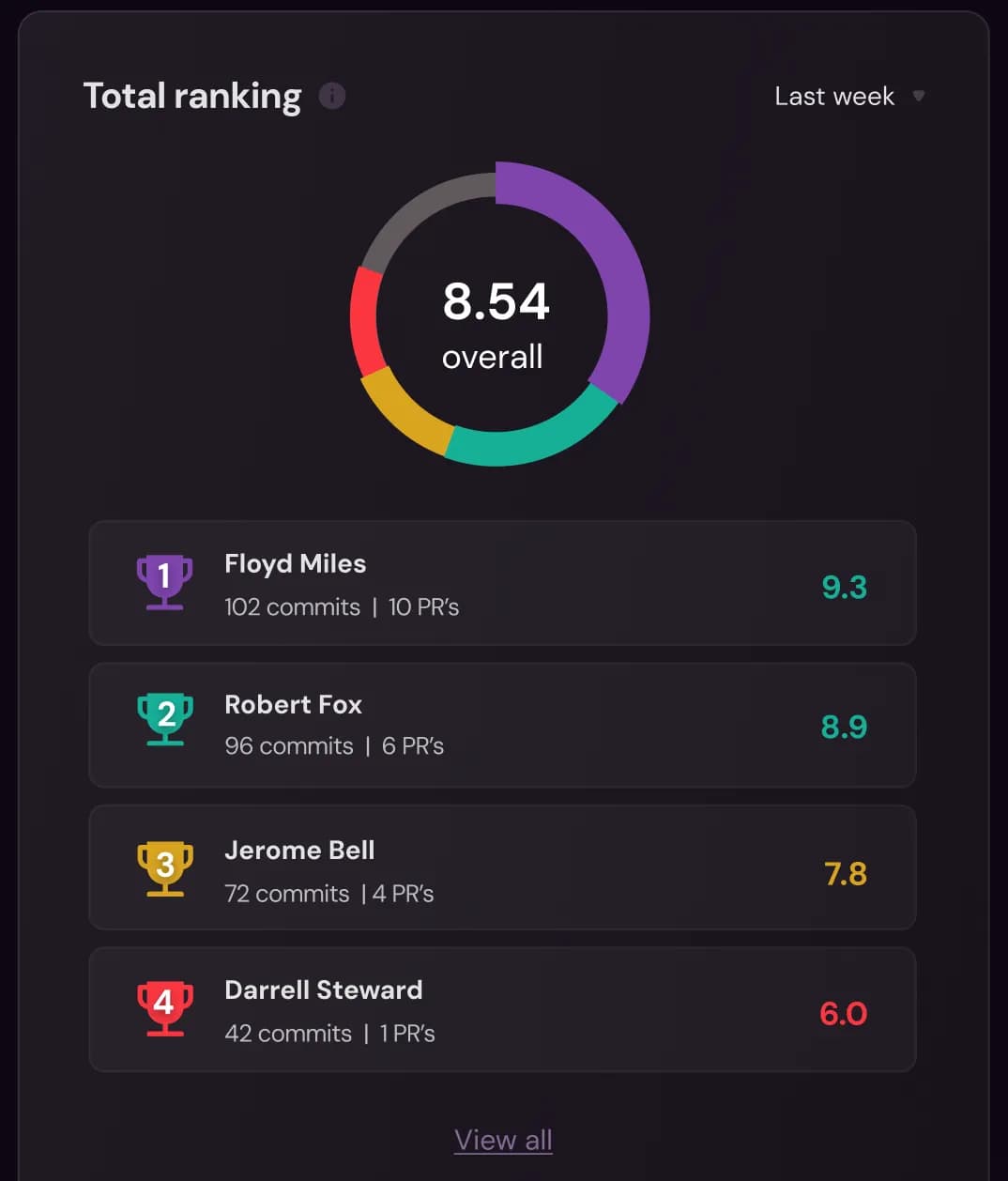What Is Our Developer Ranking?
As a manager, you’re likely familiar with performance reviews and employee rankings. These tools help you assess your team and identify top performers, areas for improvement, and where additional support might be needed. In the world of software development, something similar exists — developer rankings — and AI Tech Report AITR uses advanced technology to create these rankings in a way that’s insightful and objective.
What Is a Developer Ranking?
A developer ranking is a system that evaluates and ranks developers based on their contributions to a project. But unlike a typical performance review that may rely on subjective opinions, a developer ranking in AITR is data-driven. It looks at the code each developer produces, how efficiently they work, the quality of their contributions, and even how much they collaborate with others on the team.

Think of it as a scorecard that reflects not just the quantity but also the quality of a developer’s work, providing a more holistic view of their impact on the project.
How Does AITR Create Developer Rankings?
AITR uses artificial intelligence to automatically analyze the contributions of each developer. Here’s how we create these rankings:
Code Quality: AITR evaluates the quality of the code written by each developer. This includes how well the code is structured, whether it follows best practices, and how maintainable it is over time. Developers who consistently write clean, efficient, and reliable code rank higher.
Performance and Efficiency: The platform also tracks how quickly and effectively developers complete tasks. Developers who deliver high-quality work faster or solve complex problems efficiently are given higher rankings, helping you identify the most productive team members.
Collaboration and Teamwork: AITR monitors how well developers collaborate with others. It checks for contributions to shared codebases, participation in code reviews, and how often they help fix issues raised by the team. Developers who actively engage with their peers tend to rank higher, as collaboration is crucial for team success.
Problem Solving: AITR looks at how developers handle complex issues and whether they consistently find innovative or effective solutions. Developers who excel at problem-solving are ranked higher, as their contributions directly improve the quality and stability of the software.
Security and Best Practices
: Another important factor in the ranking is whether a developer consistently writes secure and compliant code. Developers who introduce fewer bugs or security risks, and follow industry best practices, rank higher. This ensures that the codebase remains stable and secure over time.
How Developer Rankings Help You as a Manager
You may not need to dive into the technical details, but knowing which developers are performing well and which might need extra support is crucial to leading your team effectively. Developer rankings in AITR provide you with a data-driven view of your team’s performance, helping you make better decisions regarding resource allocation, mentorship, and promotions. With these rankings, you can:
Identify top performers: Easily spot which developers are excelling and might be ready for more responsibility.
Pinpoint areas for improvement: Understand which team members need extra support, training, or mentorship.
Improve team efficiency: Use the rankings to make informed decisions about project assignments, ensuring that the right people are working on the right tasks.
Why AITR's Ranking System is Different
Unlike traditional performance reviews, AITR's rankings are based on real-time data and objective analysis. There’s no room for bias or subjective opinions, as the rankings are built purely on the measurable impact of each developer’s contributions.
This gives you a transparent and fair way to assess your team, helping you lead more effectively while ensuring your developers feel recognized for their actual work.
In conclusion, developer rankings in AITR provide you with an objective, data-backed view of your team’s strengths and areas for growth. This allows for better management decisions, more targeted support, and a clearer understanding of how your developers contribute to the success of your projects.
